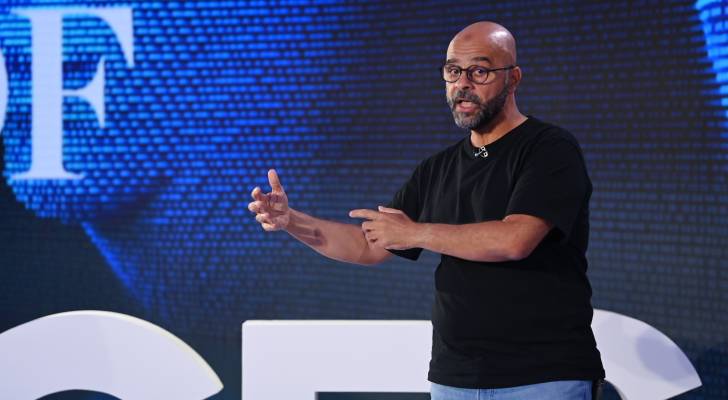Artificial intelligence is rapidly reshaping the global workforce, streamlining tasks, cutting costs and, in many cases, rendering entire roles obsolete. From factory floors to corporate offices, companies are integrating AI tools at a pace that’s forcing a reckoning across almost every industry.
Mo Gawdat, former chief business officer at Google X, takes a far more skeptical view of AI’s impact. While some experts highlight its potential to create new opportunities, Gawdat warns that such optimism may be dangerously misplaced.
“My belief is it is 100% crap,” Gawdat recently said on The Diary of a CEO podcast. “The best at any job will remain. The best software developer, the one that really knows architecture, knows technology, and so on, will stay—for a while.”
He pointed to his own AI venture, Emma.love, as a case study. What once would have required a team of 350 developers, he says, was built by just three engineers with the help of artificial intelligence.
A recent McKinsey report estimates that by 2030, 30% of U.S. jobs could be automated, with 60% of roles significantly transformed by AI. According to Gawdat, even the corner office may not be immune.
“There will be a time where most incompetent CEOs will be replaced,” he said.
Back in January 2023, ChatGPT had about 50 million weekly users. By August 2025, that figure had grown to 800 million, according to DemandSage.
Ray Dalio, founder of Bridgewater Associates, argues that the future economy will depend on our ability to balance AI’s power with human potential. A recent Microsoft report, which analyzed 200,000 anonymized interactions with its AI assistant Copilot, examined which job categories are most likely to benefit from chatbot integration but stopped short of suggesting that AI can fully replace human workers.
“Our research shows that AI supports many tasks, particularly those involving research, writing and communication, but does not indicate it can fully perform any single occupation,” Kiran Tomlinson, a senior researcher at Microsoft, said in a statement to Business Insider.
Story Continues
Not everyone agrees that automation will reach every corner of the labor market.
Steven Bartlett, host of The Diary of a CEO podcast, challenged Gawdat’s claim that all jobs are equally vulnerable. He cited his partner’s breathwork retreat business — a highly personal service centered on travel, wellness and emotional connection — as an example of work that AI can’t replicate.
Gawdat acknowledged that jobs built on human connection are more difficult to replace. But he argued that such roles represent only a small share of employment — and that many of the people who can afford these services often rely on income from jobs that are far more susceptible to automation.
Stay in the know. Join 200,000+ readers and get the best of Moneywise sent straight to your inbox every week for free. Subscribe now.
But Gawdat sees this new market as a chance to rethink the way we approach work — one that could free up more time for family, rest and building an identity beyond our careers.
“We were never made to wake up every morning and just occupy 20 hours of our day with work. We’re not made for that,” he said.
Still, if AI has you spiraling about job security, it might be time to shift gears from competing with it to collaborating with it. Start by getting curious: learn how tools like ChatGPT and Microsoft Copilot can enhance what you already do.
Then, double down on what AI can’t replicate — emotional intelligence, communication and adaptability. Whether you’re managing clients, mentoring a junior colleague or guiding a tough meeting, it’s your human touch that makes you indispensable.
Plenty of employers are already offering training on how to bring AI into day-to-day workflows. Take the course and don’t be afraid to ask questions. Show you’re willing to evolve with the tools, not wait to be replaced by them.
This article provides information only and should not be construed as advice. It is provided without warranty of any kind.

